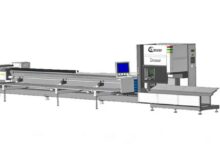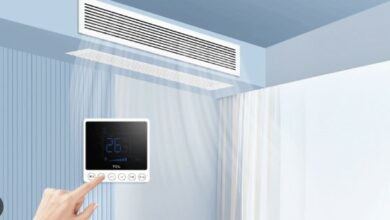Fire Alarm Maintenance 101: Ensuring Your System Is Always Ready

Fire alarm systems are crucial for the safety of any building, whether residential or commercial. However, more than simply installing a fire alarm system is required; regular maintenance is essential to ensure it functions properly when needed most. We will explore practical tips for maintaining your fire alarm system to ensure it’s always ready to detect and alert in a fire emergency.
Understanding Fire Alarm Components
Understanding your fire alarm system’s components is important for effectively maintaining it. Typical components include smoke detectors, heat detectors, control panels, sirens, and strobe lights. Smoke detectors are designed to detect smoke particles, while heat detectors respond to elevated temperatures. Control panels are the central hub that processes signals from detectors and activates alarms. Sirens and strobe lights provide audible and visual alerts, respectively. Familiarize yourself with each component’s function to conduct thorough maintenance checks.
Conduct Regular Inspections
Regular inspections are the cornerstone of fire alarms new britain maintenance. Schedule routine inspections according to manufacturer recommendations or local regulations. Inspections should include testing all detectors, checking control panel functionality, inspecting wiring for damage, verifying battery backup systems, and ensuring sirens and strobe lights are operational. Document all inspection results and corrective actions taken for compliance and record-keeping purposes.
Test Alarms and Detectors
Testing alarms and detectors is a critical aspect of fire alarm maintenance. Conduct manual tests regularly to ensure alarms sound promptly and detectors respond accurately to smoke or heat. Follow testing procedures outlined in the system’s manual, which often involve triggering alarms using test buttons or simulated smoke/heat sources. Test each zone individually to identify any malfunctioning components and promptly address issues.
Keep Batteries and Power Sources in Check
The proper power supply is essential for fire alarm systems to function reliably. Ensure batteries in smoke detectors and control panels are replaced according to manufacturer recommendations or when low-battery alerts occur. Additionally, regular checks should be conducted on power sources such as electrical connections and backup generators. Maintain a schedule for battery replacements and power system inspections to prevent system downtime during emergencies.
Update and Maintain Documentation
Accurate documentation is crucial for effective fire alarm maintenance and regulatory compliance. Keep detailed records of system installations, inspections, tests, repairs, and maintenance activities. Include dates, findings, actions taken, and personnel involved. Regularly update documentation to reflect system upgrades, component replacements, or regulation changes—accessible and organized documentation aids in troubleshooting, audits, and ensuring system integrity.
Train Personnel on Maintenance Procedures
Proper personnel training responsible for fire alarm maintenance is essential for system reliability. Conduct training sessions to educate staff on maintenance procedures, testing protocols, and emergency response protocols. Ensure personnel safely perform maintenance tasks, interpret alarm signals, and respond appropriately to fire emergencies. Encourage ongoing training and awareness of evolving fire safety standards and technologies.
Importance of Professional Maintenance
While regular inspections and testing are crucial, some aspects of fire alarm maintenance are best handled by professionals. Engage certified technicians or companies specializing in fire alarm systems to conduct comprehensive maintenance checks at least once a year. Professional technicians have the expertise to identify hidden issues, calibrate sensitive components, and perform intricate repairs or replacements. They also stay updated with industry standards and regulations, ensuring your system remains compliant and optimized for performance.
Stay Updated with Technology
Fire alarm technology continues to evolve, offering advanced features that enhance detection accuracy and system reliability. Stay informed about new technological advancements relevant to your fire alarm system. Consider upgrading modern systems that integrate with smart building technologies, allowing for remote monitoring, automated alerts, and data analytics. Regularly review system capabilities and consult with vendors or experts for recommendations on technology upgrades that align with your building’s safety requirements and budget.
Read also: The Future of Automotive Technology: How Emergency Vehicles Are Leading the Way
Emergency Response Planning
In addition to maintaining your fire alarm system, develop and review emergency response plans regularly. Collaborate with local fire departments to ensure your plans align with their protocols. Conduct drills and simulations to practice evacuation procedures, test communication systems, and evaluate response times. Incorporate drill feedback to refine emergency plans and address any weaknesses in your fire alarm system or evacuation procedures. A well-prepared response team and coordinated emergency plan can mitigate risks and minimize the impact of fire incidents.
Maintaining a functional fire alarm system is not just a legal requirement but a critical safety measure. Regular inspections, testing, documentation, and training are vital to effective fire alarm maintenance. By following these tips and staying proactive in monitoring and servicing your fire alarm system, you can ensure it’s always ready to detect and alert in a fire emergency, potentially saving lives and minimizing property damage.








